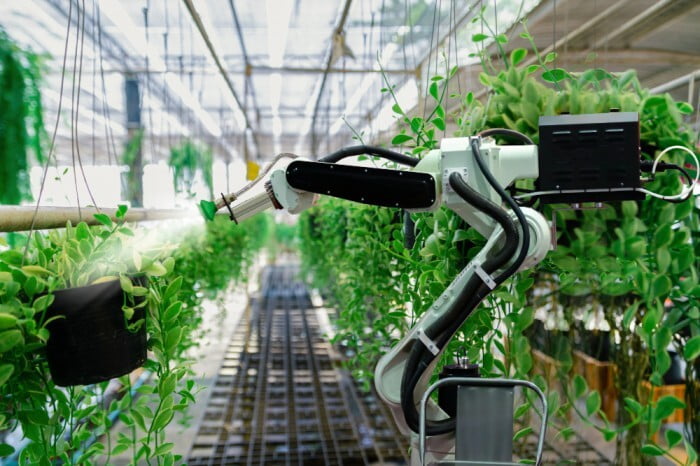The Transformative Power of Agriculture: Nurturing Sustainable Growth
Agriculture, often hailed as the backbone of civilization, has been the foundation of human existence for thousands of years. From ancient civilizations to modern societies, agriculture has played a pivotal role in shaping economies, cultures, and the overall progress of humanity. As we venture into an era marked by environmental challenges and a growing global population, the significance of sustainable agricultural practices has become more vital than ever before. In this blog, we will explore the transformative power of agriculture and its potential to nurture sustainable growth.

Feeding the World
Agriculture has the critical responsibility of feeding a constantly expanding global population. With projections estimating over 9 billion people by 2050, the demand for food production is expected to surge. Sustainable agricultural practices, such as precision farming, vertical farming, and hydroponics, can enhance crop yields, conserve water, and reduce waste. By embracing innovation and technology, we can ensure a steady supply of nutritious food while minimizing the strain on natural resources.

Environmental Stewardship:
Environmental Stewardship:
The impact of agriculture on the environment cannot be overlooked. Unsustainable practices such as deforestation, excessive pesticide use, and inefficient water management have contributed to soil degradation, biodiversity loss, and climate change. However, agriculture also holds the key to mitigating these issues. Adopting sustainable approaches like organic farming, agroforestry, and regenerative agriculture can promote soil health, preserve ecosystems, and reduce greenhouse gas emissions. By working in harmony with nature, we can build resilient and environmentally friendly agricultural systems.

Economic Growth and Rural Development:
Economic Growth and Rural Development:
Agriculture serves as a significant contributor to the global economy, particularly in developing countries. It provides employment opportunities and livelihoods for billions of people, especially in rural areas. By promoting sustainable agriculture, we can foster economic growth, alleviate poverty, and reduce inequality. Investments in infrastructure, education, and market access can empower small-scale farmers and enhance their productivity, leading to vibrant rural communities and sustainable development.

Innovation and Technology:
Innovation and Technology:
The rapid advancement of technology has revolutionized the agricultural landscape. From drones and satellite imagery to AI-powered analytics, farmers now have access to a wealth of information and tools that can optimize their decision-making processes. Smart farming techniques enable efficient resource management, disease detection, and precise application of fertilizers, resulting in increased productivity and reduced environmental impact. Embracing innovation in agriculture is essential for meeting the demands of the future and building a sustainable food system.

Climate Change Resilience:
Climate Change Resilience:
Climate change poses significant challenges to agriculture, including extreme weather events, shifting growing seasons, and water scarcity. However, agriculture can also be a part of the solution. Climate-smart practices, such as conservation agriculture, crop diversification, and water-efficient irrigation systems, can enhance resilience and adaptive capacity. Additionally, the integration of agroforestry and carbon sequestration measures can contribute to climate change mitigation by reducing carbon dioxide levels in the atmosphere.
Conclusion:
Agriculture stands at the forefront of a global transformation towards sustainability. By prioritizing environmentally friendly practices, embracing innovation, and fostering inclusive growth, we can harness the transformative power of agriculture to address pressing challenges such as food security, climate change, and rural development. Governments, farmers, researchers, and consumers all have a role to play in supporting sustainable agriculture and shaping a future where agriculture is not only productive but also regenerative and equitable. Together, let us cultivate a world where agriculture nourishes both people and the planet.

